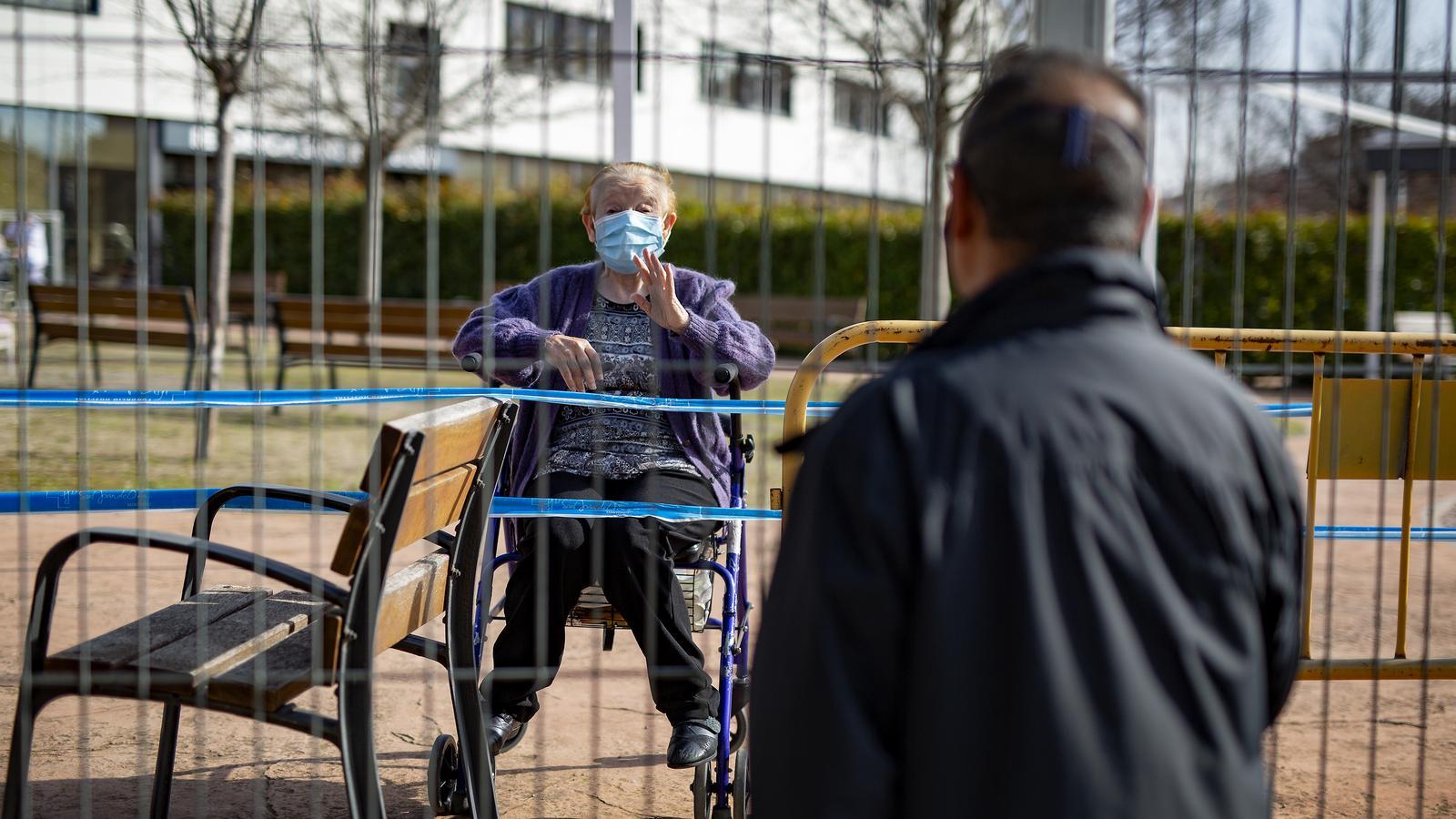Health Dpt loosens restrictions on nursing homes and allows visits to facilities with active outbreaks
Relatives appreciate the change in protocol but denounce an "emotional torture" that lasts 22 months


MartorellCare homes for the elderly will have to be more flexible when it comes to allowing outings and visits. The new protocol made public by the Department of Health and the Department of Social Rights will allow visitis to homes with active covid-19 outbreaks (listed red). Healthy and fully vaccinated residents can have contact with their families if everyone around them is immunised
The change is justified to meet the emotional needs of both users and their relatives, who for almost two years have repeatedly denounced the violation of residents' rights, always subjected to much stricter measures than the rest of the population, despite the fact that vaccination rates are much higher than in any other group: over 98% have received two doses and 91% have received three.
Although the new protocol seeks this proximity, it still maintains an overprotection of residents, which is a vulnerable group due to their age and the illnesses most of them suffer. Thus, when a positive asymptomatic or mild case is detected, they will be transferred for ten days to the red zone (isolated from the rest of the care home), or until they are symptom-free for three days. The novelty is that the sick will be able to receive visits by appointment, in controlled spaces and with a maximum of two family members who will have to wear an FFP2 mask and present a covid certificate or a negative antigen. Those who are vaccinated and have been in close contact with a positive will be kept with their bubble group, while those who are not (10%) will be quarantined and will not be authorised to have visitors until they test negative in a PCR.
Quarantined professionals
On the other hand, positive professionals may return to work on the seventh day if they have been symptom-free for at least the last three days. In these cases, as a precaution, Health recommends that they spend three days working in the care of sick residents and avoid contact with those in the covid-free zone. For workers who are close contacts of a positive there are no isolation measures, except periodic monitoring with PCR.
The organised relatives like the new protocol because it includes some of their demands to end what Lola Muñoz, from the platform Els Estels Silenciats, describes as the "emotional torture" of isolating healthy people with full vaccination, but they are "scared" that the management of each care home will adapt the regulation according to their staff and space availability to separate the positives from the rest. "Each residence has its own protocol and in these 22 months of pandemic there have been very few that have complied with the official protocols," the activist complains, who stresses they have reached "emotional exhaustion" because of all the drama experienced.
In addition, Muñoz points out, residents have paid the price for bad management and prevention in the care homes, partly due to the lack of personnel who can look after the users and spend time testing them when they leave to visit family. This has meant that on many occasions homes chose to unilaterally reduce visits.
